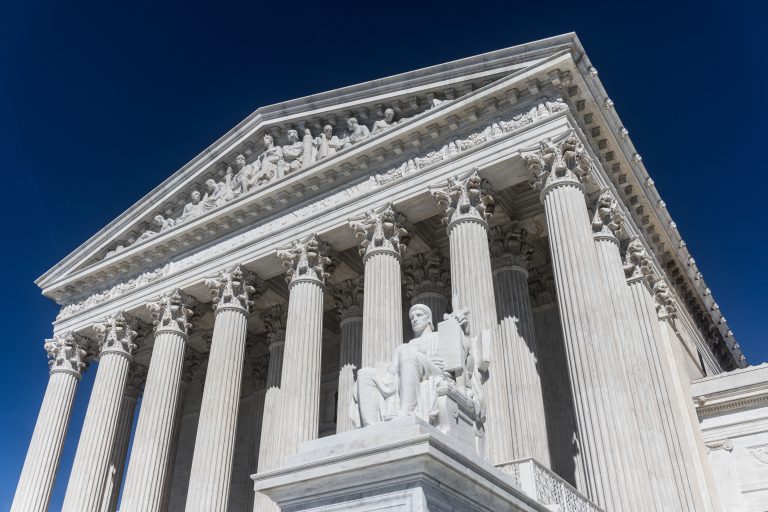The Supreme Court unanimously ruled on Monday police violated the Fourth Amendment when they entered a Rhode Island man’s home and seized his guns without a warrant.
The Court ruled police in Cranston, Rhode Island, violated Edward Caniglia’s rights when they took his guns and ammunition in 2015 after an argument with his wife caused her to become concerned about his mental health. Caniglia was taken for a psychiatric evaluation but not held after telling his wife to shoot him to end their fighting. He claimed in court he only agreed to do the evaluation if the police did not seize his guns, but police entered his home and took them anyway despite not having a warrant to do so.
“The very core of the Fourth Amendment’s guarantee is the right of a person to retreat into his or her home and ‘there be free from unreasonable governmental intrusion,'” Justice Clarence Thomas wrote for the Court.
The case further defines the limits of what police can do without first obtaining a warrant. The First Circuit had upheld the search and seizure under a “community caretaking” exception created by the Court regarding searches of impounded or abandoned vehicles. Thomas said that exception did not extend to a person’s home.
“A recognition of the existence of “community caretaking” tasks, like rendering aid to motorists in disabled vehicles, is not an open-ended license to perform them anywhere,” he said.
Caniglia’s guns were eventually returned to him in December 2020.
The case did not involve the use of extreme risk protection orders or so-called Red Flag laws, which allow police to seize firearms from those presenting signs they may be a threat to themselves or others. Rhode Island did not pass its “Red Flag” law until three years after Caniglia’s guns were seized. However, more than a dozen states have passed “Red Flag” laws in the past several years, and the ruling may provide some insight into how the Court may approach future cases challenging them.
Justice Samuel Alito said the details of the case might closely match a potential “Red Flag” case.
“This case also implicates another body of law that petitioner glossed over: the so-called ‘red flag’ laws that some states are now enacting,” he said in a concurrence. “These laws enable the police to seize guns pursuant to a court order to prevent their use for suicide or the infliction of harm on innocent persons. They typically specify the standard that must be met and the procedures that must be followed before firearms may be seized.”
He predicted future Fourth Amendment challenges might be brought against “Red Flag” laws but specifically stated the Court’s opinion in Caniglia “does not address those issues.”
“In sum, the Court properly rejects the broad ‘community caretaking’ theory on which the decision below was based,” Alito said. “The Court’s decision goes no further, and on that understanding, I join the opinion in full.”







One Response
Good.